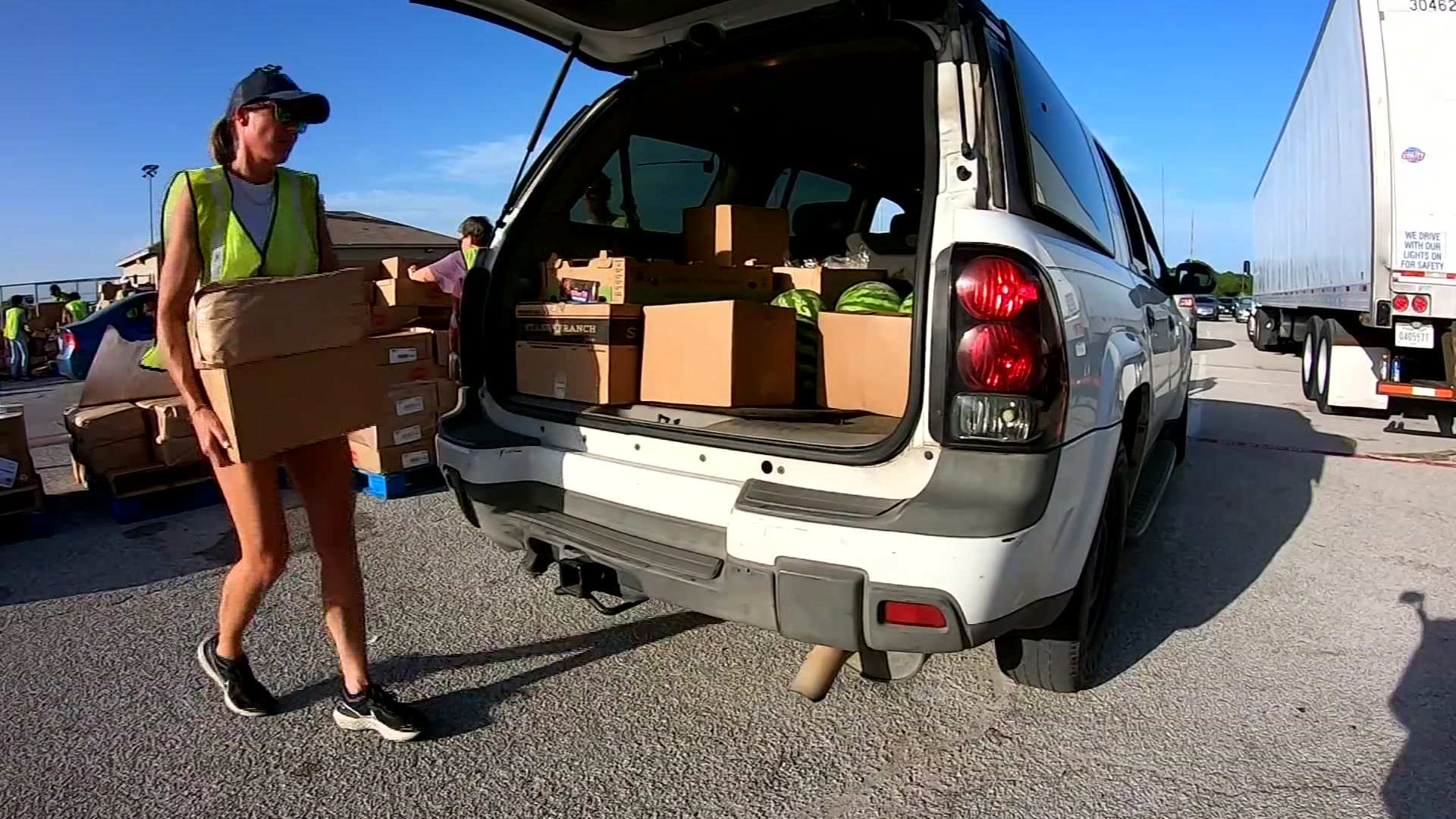Fire investigators say they have zeroed in on what likely caused a Plano house to explode Monday afternoon.
The spokesperson for Plano Fire-Rescue said an ‘isolated gas leak’ is likely to blame.
Investigators, however, have yet to determine what caused natural gas to leak into the house in the 4400 block of Cleveland Drive, the location of the leak, how long it was leaking, and what sparked the explosion.
An expert said any little spark can cause such an explosion.
Get top local stories in DFW delivered to you every morning. Sign up for NBC DFW's News Headlines newsletter.
“Plano is going to remember this explosion for a while,” said Capt. Peggy Harrell of Plano Fire-Rescue.
The explosion Monday afternoon left six people injured, including three children.
Residents have been stopping by the home to see the destruction for themselves, including the Brown family.
Local
The latest news from around North Texas.
“Just unbelievable to see what can happen in a residential area. This is scary,” said Kojis Brown. “I wouldn’t even think this could happen but what caused it? Why did it happen? Are we safe?”
A tough task for investigators digging through the rubble to find what caused natural gas to leak inside the house and what sparked the blast.
Incredibly, lightning at the time of the explosion has not been ruled out.
“Everything is being considered at this time during the investigation,” said Harrell.
Yes, it is possible, said a natural gas expert.
“Any spark could do it,” said SMU Professor of Energy Law James Coleman. “I’m not sure how often they’re able to figure out what was the spark because there are so many possible sparks.”
Speaking in general terms, Coleman said natural gas leaks can derive from appliances not installed correctly, damaged gas lines or gas lines that may have shifted in rain.
A spark could come from something as simple as flipping a light switch or turning on your car in the garage.
“To answer your question about what can light it, really almost anything. That’s why it’s so dangerous,” he said.
Coleman wants to know, “Was this an error on the natural gas company side or is this an appliance?”
Natural gas has an odor added to it, similar to rotten eggs, to make it more detectible.
“To get to the level to explode a house, typically there’s going to be a really strong smell,” said Coleman.
However, there are some instances where the pungent smell could be affected, especially during the pandemic.
“Some people don’t have a sense of smell, especially people that have had Coronavirus,” said Coleman. “Sometimes there can be soil types that would remove that odorant.”
It is also possible, he said, that rainfall could diminish the smell.
The professor advises anyone who has trouble with their sense of smell, to consider installing a natural gas detector in their home.
NBC 5 asked Plano Fire-Rescue if the resident whose home exploded reported a gas leak or the smell of gas before the explosion.
Harrell responded by saying, “I have not been told that. There are no indications of a gas leak exterior to the home or interior of the home prior to the explosion. Neighbors have not reported to us that there was any sort of indication of a gas leak in the environment.”
NBC 5 asked the spokesperson for Atmos Energy the same question. Atmos did not respond.
Plano Fire-Rescue said there is no threat to surrounding homes in the area.
Gas has been turned back on for all residents, except three homes destroyed or badly damaged in the blast. City officials have deemed some homes unsafe to live in.



